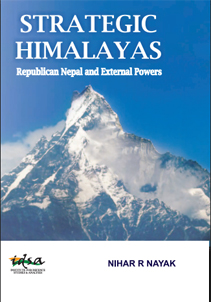The Nepal Earthquake: Could SAARC have been Effective?
In spite of the existence since October 2006 of a SAARC Disaster Management Centre, the Nepal earthquake brought to the fore the difficulties faced by this organization and its failure to rise to the occasion.
- Nihar R. Nayak
- June 02, 2015











